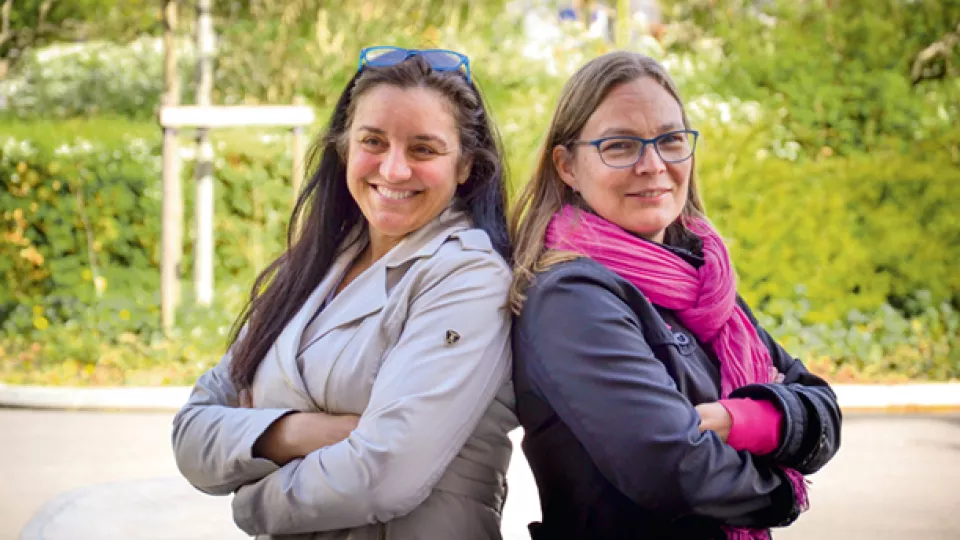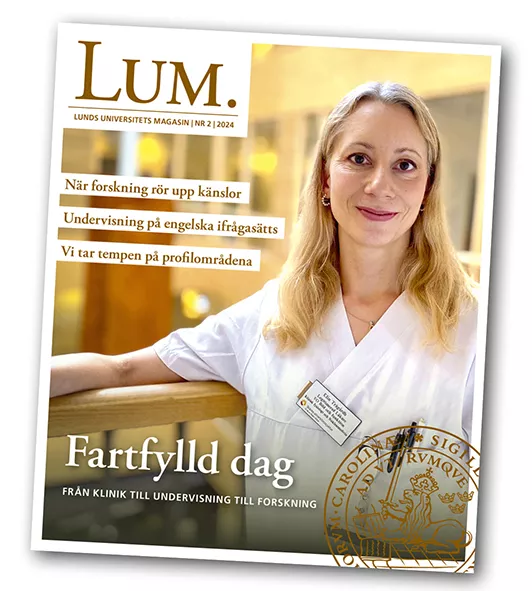Margareta Sandahl and Charlotta Turner are in charge of the Green Technology Group research group. A rather unusual leadership divided between the two in a group in which postdocs and doctoral students from different cultures, religions and parts of the world come and go. They used group dynamics exercises from the outset, but a few years ago they chose to intensify the work with the group.
"We needed to solve a specific problem, we had a person in the group who was at the centre of several difficult conflicts", says Charlotta Turner.
This led to the leaders of the research group seeking help from an organisational consultant linked to the University. Margareta Sandahl and Charlotta Turner took part in leadership discussions and different exercises to learn how to improve communication and handle conflicts. The specific problem was not solved but the leadership duo's ability to handle the situation did improve. One of the things they learnt about was mirroring.
"Mirroring is very useful in discussions with someone who thinks everything is someone else's fault, for example, the bad supervisor", says Margareta Sandahl. Mirroring focuses on turning the problem around and asking questions such as 'What do you think you can do yourself to solve this?' 'Why do you think this didn't work?'
They also realised that they needed to work more regularly on group dynamics.
"A group changes as soon as a person comes or goes, so the work is never really over", says Margareta Sandahl.
These days, they have a specific course for the research group. The group has completed the course in its entirety and now selects exercises from it according to their needs. The course includes exercises and theories on values, feelings, body language and how people act based on how they feel.
"They learn that it is important to dare to reveal a little of themselves. If you don't, the communication won’t work", says Margareta Sandahl.
It is up to each individual how much they choose to drop their facade, but everyone is aware that it is necessary to gain the trust of others. As part of their doctoral studies, students are expected to learn how to network and be able to make contacts.
"Building trust is essential when creating research collaborations in their careers. It is not enough to send someone away to a conference and then tick off that they are able to network", says Charlotta Turner.They both believe the biggest difference between a more homogenous group and an international group is that there is greater variation in values; something that they say is not possible to change.
"However, it is possible to modify attitudes and change behaviours, even if the values are set in stone", says Charlotta Turner.
One exercise involved choosing a candidate from ten applicants for a doctoral studentship with the exact same qualifications but with different characteristics, personal circumstances and backgrounds. One person refused to take part at all.
"There was heated debate, despite it being a fictitious exercise! And it turns out we had very different core values", says Margareta Sandahl.
They also use a particular method if there is a conflict in the group and try to pick up on issues before they escalate.
"Conflicts are often built on misunderstandings and it is not unusual for someone to cry – but it often ends with a hug", says Charlotta Turner.At the meeting, the person talking is only allowed to talk in the first person, they are not allowed to generalise or use "one" or "we" or in any other way distance themselves from what is being said. Each person is allowed to present their experience without interruptions and must then listen to the other person without interrupting. The leader monitors the time and suggests – if possible – a solution at the end.
"However, as time goes on they reach solutions more and more independently and that is of course the aim – we want them to become strong and manage without us", concludes Margareta Sandahl.



